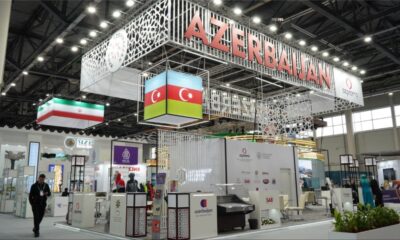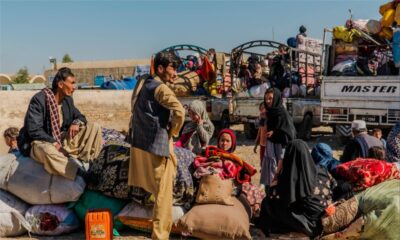Business
Afghanistan’s Bayat Power the Proud Winner of Asian Power Award 2023
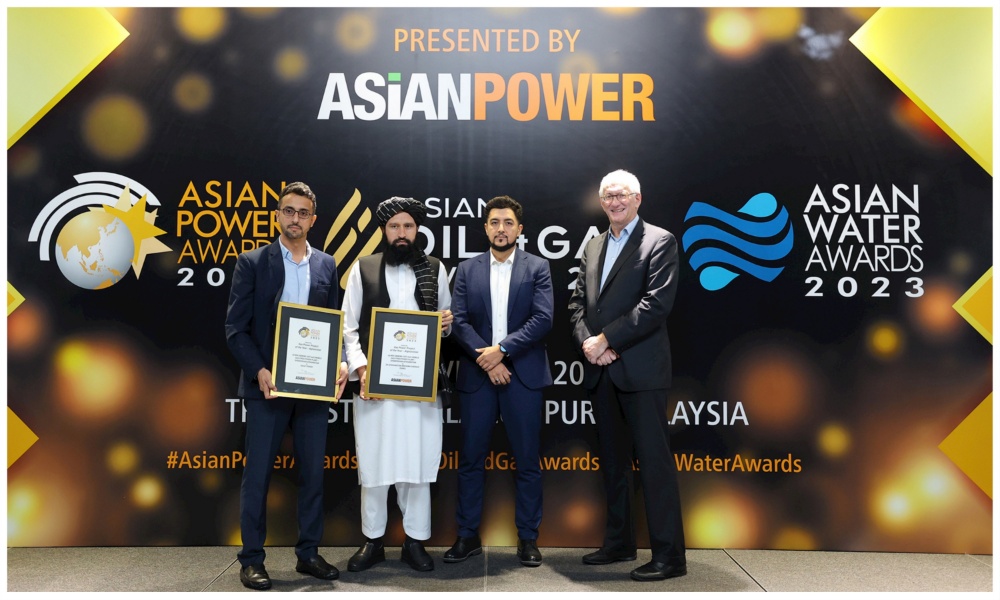
Bayat Power, a trailblazer in Afghanistan’s independent power production sector, was on Wednesday night awarded the prestigious Asian Power Award 2023 for its groundbreaking gas-fired mobile power plant.
Combining creative business vision, bold financing, innovative technology, and dedicated leadership, Bayat Power pioneered Afghanistan’s emerging, independent power production sector in 2019 with the focus on providing the nation with affordable, reliable, and environmentally sustainable electricity that is desperately needed to improve the lives of Afghanistan households, communities, and businesses.
Considered a leading award ceremony for the power industry in Asia, the awards honor companies that have taken innovative and game-changing steps to address the effects of the climate crisis and meet the growing demand for energy.
In line with this, the awards ceremony is a celebration of excellence, innovation, and sustainability in the power sector, and provides a platform for industry players to network, share their experiences, and learn from one another.
On hand to accept the award on Wednesday night was Bayat Power’s CEO Ali Kasemi who said it was an honor and a privilege for the company to receive the accolade. He also said the award was an acknowledgement of the hard work and tenacity of Afghans in their quest for energy security and self-sufficiency in the power sector.
“Bayat Power is extremely proud that the Asian Power Awards have recognized our project as the Gas Power Project of the Year in Afghanistan. But we are even prouder of our continued efforts to improve the lives of Afghans across the country, enabling students to study at night, allowing health workers to provide critical services 24/7, supporting factory production, and lighting up cities, streets, mosques, and homes nationwide,” said Kasemi.
“We set out to relaunch a critical sector and prove that independent power producers can convert natural gas into electricity and bring light and warmth to Afghanistan and its people,” he added.
Bayat Power was established in 2013 and with its visionary and innovative leadership, the company is establishing the foundations of an emerging independent power producing sector in Afghanistan.
Currently providing electricity to hundreds of thousands of end-users and generating more than 300 million kWh annually, the project was structured as an innovative public-private partnership between Bayat Power, Siemens Energy, and Afghanistan government entities such as the Ministry of Mines and Petroleum, Afghan Gas Enterprises (AGE), Da Afghanistan Breshna Sherkat (DABS), and other international partners.
“This project has been a unique opportunity to match creative private sector investment with Siemens’ internationally renowned technical expertise to allow Afghanistan towards powering the next phase of the nation’s economic growth and energy security,” said Dr. Ehsanollah Bayat, Chairman of Bayat Power.
“We are committed to continue investing in Afghanistan’s energy sector to boost new industries, create jobs and train a new generation of Afghan engineers and technical specialists, who will help unlock the country’s vast energy potential.”
From the outset, the company has tapped into the nation’s abundant natural gas reserves to provide the people with a reliable supply of affordable and sustainable electricity.
In 2019, Bayat Power took a major step towards realizing their mission when they commenced the start of site work on Bayat Power-1’s 40MW gas-fired turbine, which achieved commercial operation later that year in Sheberghan. The plant uses Siemens Energy’s SGT-A45 mobile gas turbine for its economic efficiency, flexible deployment, and power density.
The foundation of the project meanwhile is the executed Power Purchase Agreement (PPA) with DABS in which DABS has agreed to purchase the power produced by Bayat Power.
Accepting the award on Wednesday night, Kasemi acknowledged DABS and thanked the authorities of Afghanistan’s power supply company for their support and continued cooperation with Bayat Power.
“I would like to thank DABS, the national utility company of Afghanistan, who have been an amazing partner for us and who also nominated us for the prestigious award,” he said. Kasemi also thanked the Honorable Chargé d’affaires for Afghanistan in Malaysia, Naqibullah Ahmadi, and all Bayat Power colleagues.
He pointed out that the Bayat Group is the largest private investor in Afghanistan and that Bayat Power is currently the only gas-powered plant in Afghanistan.
Bayat Power “has delivered almost one billion kilowatt hours to date,” he said, adding that the Siemens Energy’s SGT-A45 mobile gas turbine used by the company “is the only one in operation in the world”.
“Right now, Afghanistan is ripe for investment and has not seen this level of peace and security in many, many decades,” he said adding that “it is a great time to join us in investing there, especially in the energy sector as Afghanistan has vast amounts of resources.”
Bayat Power’s plant utilizes advanced and efficient technology, offering significantly more power and higher efficiency compared to other mobile gas turbines worldwide.
The project, in addition to generating significant tax revenues to the government, has created thousands of direct and indirect job opportunities for Afghans, contributing to the nation’s economic condition and fostering new technical skill sets amongst talented citizens.
Bayat Power’s partnership with state-owned enterprises for the country’s development has borne fruitful results – one of which is the recognition received by the Asian Power Awards, honoring Bayat Power as the Gas Power Project of the Year.
Shoulder-to-shoulder with other power giants
Bayat Power’s achievement at this year’s awards is an historic moment for both the company and the country as it follows in the footsteps of a number of world giants in the power sector that won the award in the past. This includes 2020 winner Seoul Power and 2019 winner Saudi Arabia’s ACWA Power, which has a massive footprint across 12 countries.
Another global giant to win an Asian Power Award was Tata Power Delhi Distribution Limited, which supplies electricity to over seven million people in North Delhi. Tata won an accolade at the 2021 Asian Power Awards.
This year was no different as exceptional projects, and initiatives were lauded at the Asian Power Awards ceremony and this year’s entries were judged by an elite panel of experts in the field.
In the Asian Oil and Gas category, the Saudi giant Aramco walked off with the Digital Transformation Initiative of the Year award,
Shell also secured three awards in the Oil and Gas category including the Digital Transformation Initiative of the Year award for Singapore and the New Product of the Year award for its Indonesia Lubricants Supply Chain.
Working for a better future
Welcoming Wednesday’s news, Naqibullah Ahmadi, Afghanistan’s Charge d’affaires in Kuala Lumpur, said after the ceremony that Afghanistan is progressing day-by-day and it is a matter of pride that Afghan companies can win awards alongside major international firms.
He said that round-the-clock efforts are needed to make the country prosperous as there are many projects to complete.
According to Ahmadi, Afghanistan now offers good opportunities in the Islamic Emirate’s quest for development and growth, and Afghans should join hands, unite, and work to rebuild and develop their country.
He called on Afghan traders abroad to return home and to take part in rebuilding Afghanistan by investing in the country.
Ahmadi also called on international companies to seize the opportunities available for investment in the country.
He in turn thanked the leadership of Bayat Power and Turkey’s 77 Group, which won an award in the Solar Power category, for investing in the country and maintaining high standards, that meet international regulations.
Business
Afghanistan business sector eager to attend Kazan Halal Expo and Forum in Russia
The forum will run from May 13 to 18 and will bring together experts from Russian regions; OIC member states; and other countries
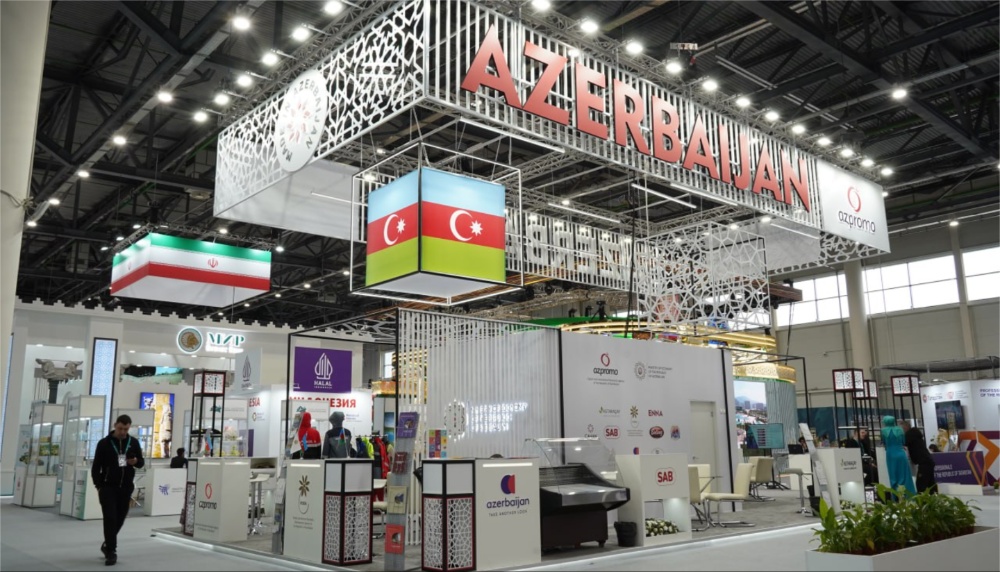
The Ministry of Industry and Commerce has confirmed that Afghanistan will participate in the XVI (16th) International Economic Forum ‘Russia — Islamic World: Kazan’ and the Kazan Halal Expo in Russia this year.
The forum will run from May 13 to 18 and will bring together experts from Russian regions; the Organization of Islamic Cooperation (OIC) member states; and other countries to discuss various topics during the 120 sessions planned.
The expo meanwhile will showcase thousands of goods from around the world that meet Halal standards.
Abdul Salam Javad Akhundzada, the ministry’s spokesman, said Sunday that Minister of Industry and Commerce Nooruddin Azizi has stated that Afghanistan is ready to participate in the event and showcase Afghan products.
According to Akhundzada, Azizi has discussed the event with members of the private sector who are eager to participate.
The expo, which is held annually alongside the forum, is Russia’s largest trading platform for Muslims.
Russia’s President Vladimir Putin said in a statement on the forum and expo recently that “Russia values its traditionally friendly ties with Muslim countries. We highly appreciate their desire to pursue an independent foreign policy and increase their role in international affairs.
“Together, we stand for the formation of a democratic multipolar world order, based on the rule of law and principles of justice, free from any form of dictatorship and discrimination.
“Of course, we are also committed to expanding mutually beneficial cooperation in all areas, from trade and investment to sports and tourism,” he said.
Putin went on to say “I believe that the work of the forum will be meaningful and constructive as always and will be held in a spirit of openness and trust. It will serve to further promote the friendship and creative partnership between our countries and peoples.”
The forum will bring together experts from Russian regions, the Organization of Islamic Cooperation (OIC) member states, and other countries to discuss:
Business
Iran exports non-oil goods worth over $2 billion to Afghanistan in 11 months
Afghanistan was Iran’s fifth top export destination between March last year and February this year
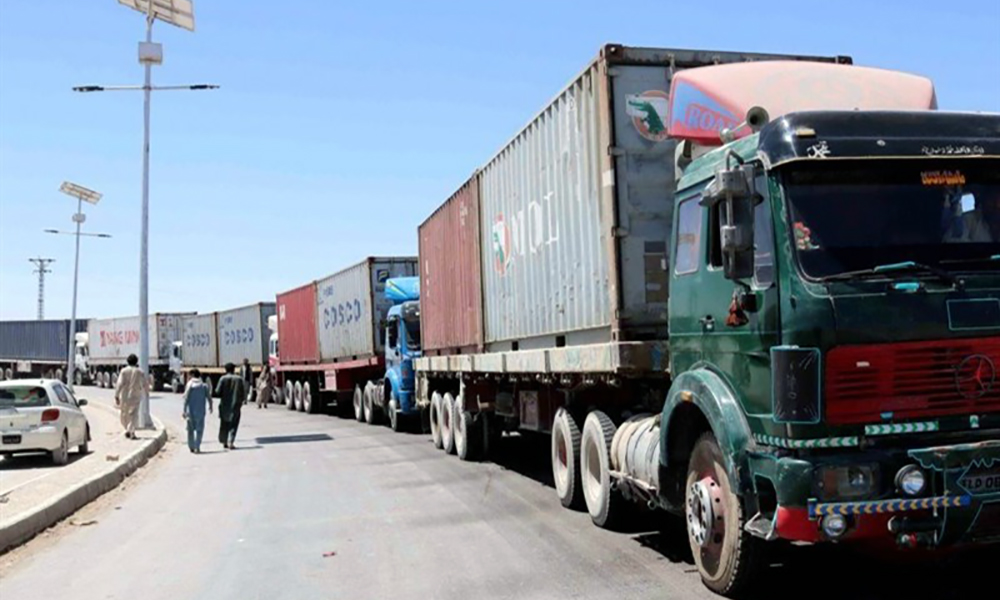
Iran exported non-oil commodities worth $2.2 billion to Afghanistan during the 11-month period from March 20, 2024 to February 18, 2025, the head of Iran Customs Administration (IRICA) said.
Foroud Asgari said Afghanistan was Iran’s fifth top export destination in the mentioned 11-month period, Tehran Times reported Sunday.
In the past year, Afghanistan and Iran have forged closer trade ties. In February, the governors of both central banks met on the sidelines of a banking technology summit in Yekaterinburg, Russia, where they discussed strengthening monetary and banking cooperation.
Also, in October, ports and maritime officials of Iran and Afghanistan met to discuss investment opportunities for the Afghan private sector in Iran’s southeastern Chabahar Port.
Tehran Times reported that this meeting was attended by the director general of the Ports and Maritime Department of Sistan-Baluchestan Province, the governor-general of the province, some Iranian MPs, and officials of the Afghanistan Trade and Industry Ministry.
Meanwhile, in a meeting with an Iranian trade delegation in Kabul last August, Afghanistan’s interim Deputy Prime Minister Mullah Abdul Ghani Baradar Akhund said that his country is eager to attract Iranian investors in order to develop the Afghan mining industry, generate solar electricity and expand railway connectivity.
The Iranian delegation also proposed to launch a joint special industrial zone with Afghanistan.
Afghanistan supplies more than 80 percent of its market needs through imports, and imports from Iran constitute 25 percent of this amount.
The establishment of national security and the central government in Afghanistan over the past two years have improved the conditions of trade between the two countries.
Business
Trump unveils first $5 million ‘gold card’ visa

Holding a prototype that bore his face and an inscription “The Trump Card”, the Republican president told reporters that the special visa would probably be available “in less than two weeks”.
“I’m the first buyer,” he said. “Pretty exciting, huh?”
Trump previously said that sales of the new visa, a high-price version of the traditional green card, would bring in job creators and could be used to reduce the US national deficit.
The billionaire former real estate tycoon, who has made the deportation of millions of undocumented migrants a priority for his second term, said the new card would be a route to highly prized US citizenship.
He said in February that his administration hoped to sell “maybe a million” of the cards and did not rule out that Russian oligarchs may be eligible.
(AFP)
-

 Latest News5 days ago
Latest News5 days agoMinistry of Economy calls on US to release Afghanistan’s frozen funds
-

 Latest News5 days ago
Latest News5 days agoPakistan ‘extends’ deadline for a week for Afghans to leave the country
-

 World5 days ago
World5 days agoAs Iran tensions build, US military moves warplanes to reinforce Middle East
-

 Sport5 days ago
Sport5 days agoIPL 2025: Batters in race for prestigious Orange Cap
-
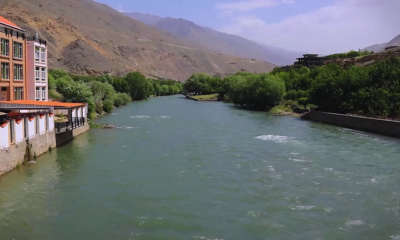
 Latest News4 days ago
Latest News4 days agoPanjshir to Kabul water conduit project ‘waiting for budget approval’
-
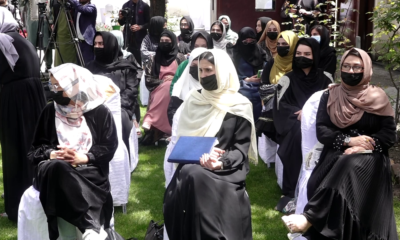
 Latest News5 days ago
Latest News5 days agoFemale journalists complain about lack of access to accurate and timely information
-

 Business4 days ago
Business4 days agoExports to Pakistan grind to a halt over faulty scanner at Torkham
-

 Regional4 days ago
Regional4 days agoMilitary confrontation seems inevitable if no new Iran nuclear deal, France says












